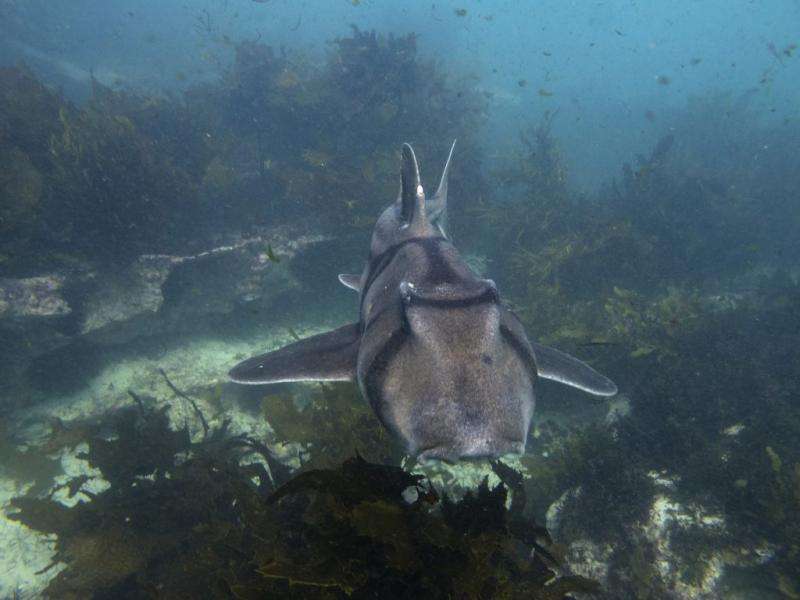The shark network—exposing the social lives of sharks

Researchers have shown for the first time that sharks show very strong preferences for particular individuals in their social networks over years and prefer to hang out with other individuals of the same sex and size, in a new study released today.
In research published in Royal Society Open Science, Associate Professor Culum Brown and team used social network analysis to examine the social interactions of Port Jackson sharks, arguably the most common sharks in southern Australia.
"One of the exciting things about this research is that we found the large aggregations that these sharks form in the breeding season is not a random collection of individuals. These sharks prefer to hang out with other individuals who are similar to them," said Associate Professor Brown.
Dr Johann Mourier, the lead author on the paper, said many animals form social groups to varying degrees, but studying the social lives of large aquatic animals is inherently difficult largely because it is hard to observe their behaviour.
"You have to get up close and personal to really understand how these animals interact with one another. Meaningful social interactions are only detected if you look at relatively small spatial scales, and we cannot generate an accurate picture of social interactions if data is collected at a large spatial scale," said Dr Mourier.
Port Jackson sharks are small sharks that undergo huge migrations. Sharks tagged during the breeding season (winter) in Jervis Bay in New South Wales migrate all the way to Tasmania and back.
When the sharks return to their breeding reefs, they do so with incredible accuracy.
"Both males and females return to the same rocky reef to breed year after year, which is unusual for sharks, but it means that these sharks establish long term relationships over many years," said Jo Day from Taronga Zoo, a co-author of the paper.
The Fish Lab at Macquarie studies these shark social interactions by using acoustic tags that identify individual animals when they are within range of a receiver. By analysing the time-stamps, the researchers can tell who hangs out with who and for how long.
"Accurately estimating contacts between animals is critical in ecological studies such as examining social structures, predator–prey interactions or transmission of information and disease. This research sheds light on the social behaviour and movement patterns of sharks generally and will help dispel the 'mindless killer' label these fascinating creatures are all too often lumped with," said Associate Professor Brown.
More information: Does detection range matter for inferring social networks in a benthic shark using acoustic telemetry? Royal Society Open Science. August 2017. dx.doi.org/10.1098/rsos.170485
Journal information: Royal Society Open Science
Provided by Macquarie University




















